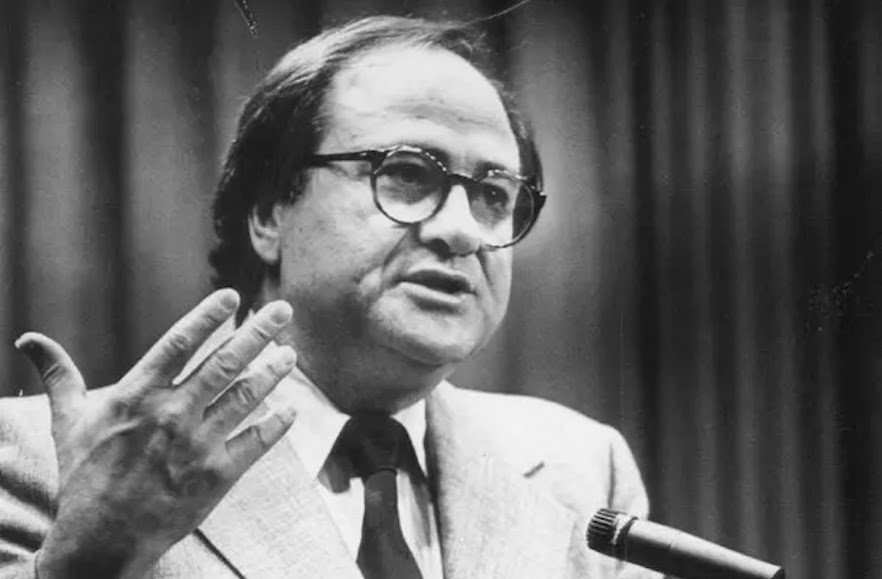
- Details
- By Daniel Sheehan
Guest Opinion. We at the Lakota People’s Law Project mourn the loss of a good and important man this past week. Retired South Dakota United States Senator James Abourezk, the architect of the Indian Child Welfare Act (ICWA), passed away in Sioux Falls on Friday, Feb. 24 on his 92nd birthday. Throughout his long life, Sen. Abourezk was a tireless champion of the rights of the Indigenous Peoples of North America, and throughout the decades, I was fortunate to work alongside him. Since 2005, he chaired Lakota Law’s Advisory Committee, and we will miss him greatly.
Just last year, Sen. Abourezk assisted our legal team in filing an amicus brief supporting ICWA with the United States Supreme Court. Later this year, the High Court could overturn the senator’s landmark piece of federal legislation — and that poses an imminent threat to Native families and sovereignty. The brief, which you can read here, highlights his unique and studied perspective on why it’s critical to keep Native kids in Native care.
I first met the senator in 1973 at the time of the Wounded Knee occupation, where he was attempting to peacefully end the U.S. government’s massive siege of American Indian Movement activists. As you may know, we commemorated the 50th anniversary of that momentous event earlier this month. Later, Sen. Abourezk proposed the formation of the American Indian Policy Review Commission to study legislation with the goal of addressing key issues in Indian Country. And during Obama’s years in the White House, Sen. Abourezk led the Lakota People’s Law Project in its drafting of ICWA’s strong federal enforcement guidelines.
The senator was also an ardent opponent of both the Dakota Access and Keystone XL oil pipelines. In the wake of Standing Rock’s resistance to Dakota Access, when Lakota Law co-director Chase Iron Eyes was accused of domestic terrorism after an invasive surveillance campaign by law enforcement and militarized private security, he rallied to Chase’s side. Chase was, of course, exonerated.
Senator Abourezk will be remembered for his grit and wit by all of us here at Lakota Law, millions of Americans, and many Lakota People for whom he had so much love. He is survived by his wife, Sanaa Dieb, two daughters and two sons, a stepdaughter, and a score of grandchildren and great-grandchildren. Our sincere condolences to his family. We at Lakota Law pledge to honor the senator’s legacy as a friend to Turtle Island by doing all we can to protect ICWA and defend Native families, communities, and sovereignty.
Daniel Sheehan is the president and chief counsel for The Lakota People's Law Project.
Help us defend tribal sovereignty.
At Native News Online, our mission is rooted in telling the stories that strengthen sovereignty and uplift Indigenous voices — not just at year’s end, but every single day.
Because of your generosity last year, we were able to keep our reporters on the ground in tribal communities, at national gatherings and in the halls of Congress — covering the issues that matter most to Indian Country: sovereignty, culture, education, health and economic opportunity.
That support sustained us through a tough year in 2025. Now, as we look to the year ahead, we need your help right now to ensure warrior journalism remains strong — reporting that defends tribal sovereignty, amplifies Native truth, and holds power accountable.
 The stakes couldn't be higher. Your support keeps Native voices heard, Native stories told and Native sovereignty defended.
The stakes couldn't be higher. Your support keeps Native voices heard, Native stories told and Native sovereignty defended.
Stand with Warrior Journalism today.
Levi Rickert (Potawatomi), Editor & Publisher

